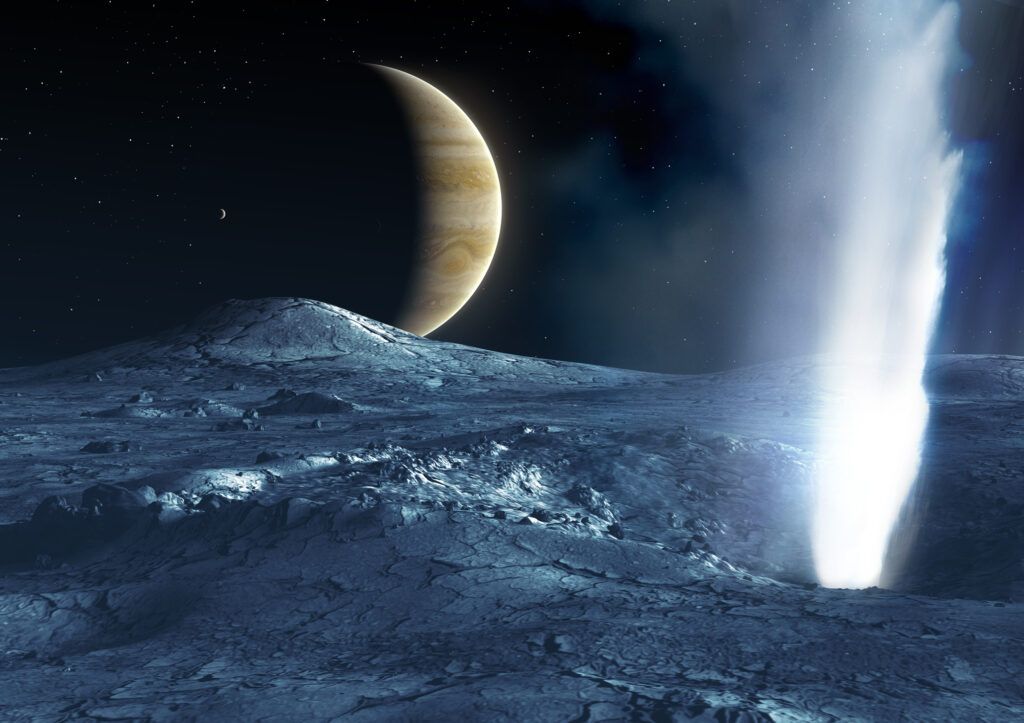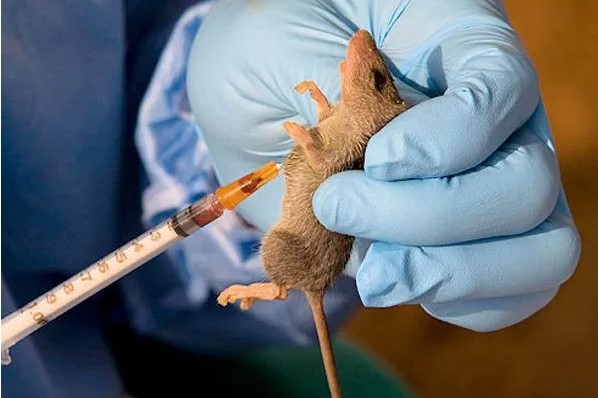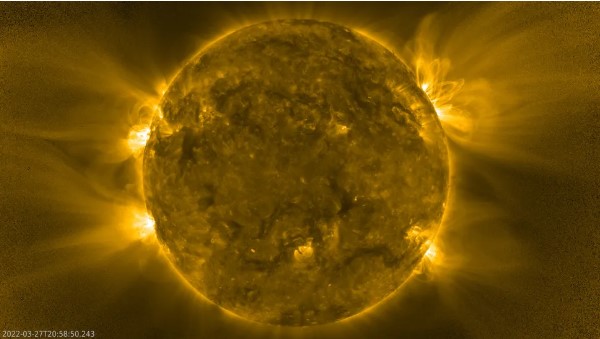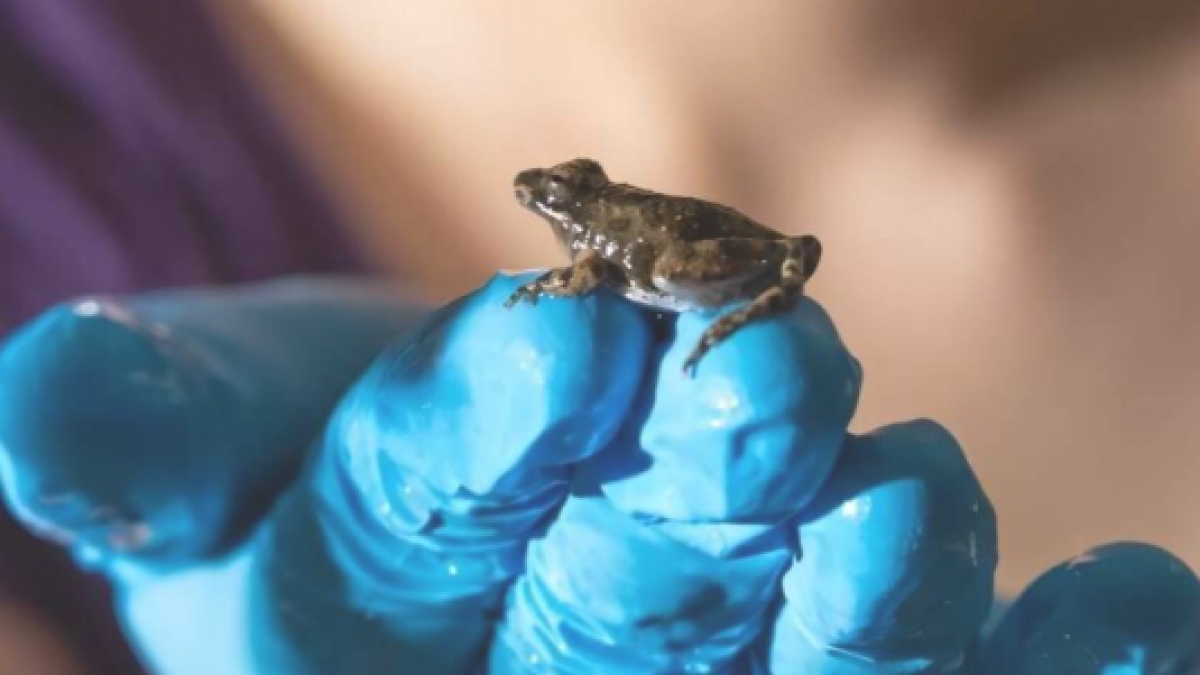New Research Advances Understanding Of The Habitability Of Icy Moons

Dr. Matt Powell-Palm, a faculty member at Texas A&M University's J. Mike Walker '66 Department of Mechanical Engineering, has announced groundbreaking research that could transform our understanding of icy ocean worlds throughout the solar system as NASA's Europa Clipper embarks on its historic journey to Jupiter's icy moon, Europa.
Did you know? You can comment on this post! Just scroll down
The study, published in Nature Communications, co-authored with planetary scientist Dr. Baptiste Journaux of the University of Washington, introduces a novel thermodynamic concept called the "centotectic" and investigates the stability of liquids in extreme conditions—critical information for determining the habitability of icy moons like Europa.
Revolutionizing the Search for Habitability.
The exploration of freezing ocean worlds marks a new frontier in planetary science, with a focus on determining whether these settings can host life. Powell-Palm's discovery answers a crucial question in this field: under what conditions can liquid water remain stable on these far-flung, frozen bodies? By defining and measuring the cenotectic, or the absolute lowest temperature at which a liquid remains stable under varied pressures and concentrations, the team provides an important framework for interpreting data from planetary exploration missions.
This work combines Powell-Palm's expertise in cryobiology, notably low-temperature thermodynamics of water, which was primarily focused on medical applications such as organ preservation for transplantation, with Journaux's experience in planetary science and high-pressure water-ice systems. They worked together to create a framework that crosses disciplines to address one of the most exciting questions in planetary science.
"The launch of NASA Europa Clipper, the greatest planetary exploration mission ever launched, marks the beginning of a multi-decade period of investigation of cold and icy ocean planets. According to Journaux, measurements from this and previous missions will reveal the depth and composition of the ocean. "Laboratory measurements of liquid stability, and notably the lowest temperature possible (the newly-defined cenotectic), combined with mission results, will allow us to fully constrain how habitable the cold and deep oceans of our solar system are, and also what their final fate will be when the moons or planets have cooled down entirely."
"The launch of NASA Europa Clipper, the greatest planetary exploration mission ever launched, marks the beginning of a multi-decade period of investigation of cold and icy ocean planets. According to Journaux, measurements from this and previous missions will reveal the depth and composition of the ocean. "Laboratory measurements of liquid stability, and notably the lowest temperature possible (the newly-defined cenotectic), combined with mission results, will allow us to fully constrain how habitable the cold and deep oceans of our solar system are, and also what their final fate will be when the moons or planets have cooled down entirely."
Legacy Of Innovation In Space Research
Arian Zarriz, a mechanical engineering graduate student at Texas A&M, led the research. The work highlights Texas A&M's extensive knowledge of water-ice systems and its long history of competence in space research across numerous disciplines. With the recent establishment of the Texas A&M Space Institute, the university is set to play an even greater role in space exploration, providing intellectual leadership for missions that push the limits of human understanding.
"The study of icy worlds is a particular priority for both NASA and the European Space Agency, as evidenced by the flurry of recent and upcoming spacecraft launches," Powell-Palm told reporters. "We hope that Texas A&M will help to provide intellectual leadership in this space."
Looking Ahead
As planetary exploration missions, such as those aimed at ice moons, continue to advance our understanding of the solar system, researchers at Texas A&M and elsewhere prepare to examine the vast amounts of data they will generate. Scientists want to understand the secrets of cold, ocean-bearing worlds and assess their potential for life by integrating experimental studies like those undertaken by Powell-Palm and Journaux with the results of these expeditions.
Article Posted 5 Months ago. You can post your own articles and it will be published for free.
No Registration is required! But we review before publishing! Click here to get started
One Favour Please! Subscribe To Our YouTube Channel!
468k
Cook Amazing Nigerian Dishes, Follow Adorable Kitchen YouTube Channel!
1.1m
Like us on Facebook, Follow on Twitter
React and Comment
Click Here To Hide More Posts Like This
Watch and Download Free Mobile Movies, Read entertainment news and reports, Download music and Upload your own For FREE.
Submit Your Content to be published for you FREE! We thrive on user-submitted content!
But we moderate!

















